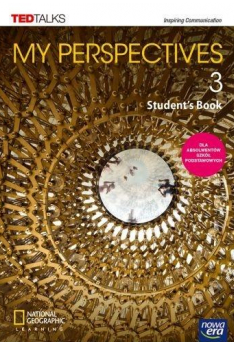II liceum
Język angielski
Lista zadań Strona 65
Strona 65
- Strona 4
- Strona 5
- Strona 6
- Strona 7
- Strona 8
- Strona 9
- Strona 10
- Strona 11
- Strona 13
- Strona 14
- Strona 15
- Strona 16
- Strona 17
- Strona 18
- Strona 19
- Strona 20
- Strona 21
- Strona 22
- Strona 23
- Strona 25
- Strona 27
- Strona 29
- Strona 30
- Strona 31
- Strona 32
- Strona 34
- Strona 35
- Strona 36
- Strona 37
- Strona 38
- Strona 39
- Strona 40
- Strona 41
- Strona 43
- Strona 45
- Strona 47
- Strona 48
- Strona 49
- Strona 50
- Strona 51
- Strona 52
- Strona 53
- Strona 54
- Strona 55
- Strona 56
- Strona 57
- Strona 59
- Strona 61
- Strona 63
- Strona 64
- Strona 66
- Strona 68
- Strona 69
- Strona 70
- Strona 71
- Strona 72
- Strona 73
- Strona 74
- Strona 75
- Strona 77
- Strona 79
- Strona 81
- Strona 82
- Strona 83
- Strona 84
- Strona 86
- Strona 87
- Strona 88
- Strona 89
- Strona 90
- Strona 91
- Strona 93
- Strona 95
- Strona 97
- Strona 98
- Strona 99
- Strona 100
- Strona 102
- Strona 103
- Strona 104
- Strona 105
- Strona 106
- Strona 107
- Strona 108
- Strona 109
- Strona 111
- Strona 113
- Strona 115
- Strona 116
- Strona 117
- Strona 118
- Strona 119
- Strona 120
- Strona 121
- Strona 122
- Strona 123
- Strona 124
- Strona 125
- Strona 127
- Strona 129
- Strona 131
- Strona 132
- Strona 133
- Strona 134
- Strona 135
- Strona 136
- Strona 137
- Strona 138
- Strona 139
- Strona 140
- Strona 141
- Strona 142
- Strona 143
- Strona 145
- Strona 147
- Strona 148
- Strona 149
1
Look at the sentences in the Grammar box. Answer the questions (1-6).Third conditionala If I had looked after my teeth, I would have saved a lot of money.b If someone had told me earlier not to prioritise work, I wouldn't have wasted so much time.c I wish I had taken better care of myself in my youth. d If only I hadn't worked so much.1 (Sentence a) Did she look after her teeth? Did she save a lot of money?2 (Sentences a and b) Can the speakers change these situations?3 What form of the verb is used in the if-clause? What form of the verb is used in the result clause? 4 (Sentences c and d) You learnt about I wish and If only. What time are they expressing in these sentences? What emotion is being expressed? 5 What structure is used with I wish and If only here? 6 (All sentences) Are the sentences describing real events or imaginary ones?More explanation in Grammar reference on p. 76.
2
Complete the secrets to a long life with the correct form of the verbs.Most hundred-year-olds have few regrets. If they didn't have such a positive view of life, they probably wouldn't have survived so long. Here are some of their secrets: 1 Jiroemon Kimura (Japan) lived all the way to 116. He said he (not / live) so long if he (eat) big meals. He always had small portions.2 Jeanne Louise Calment (France) is the only person to have lived to 122. She thought that if she (worry) about her health, she (die) much earlier.3 Fred Hale (United States) believes he (not / surf) for the first time at 95 years old if he (not / eat) honey all his life.4 Emma Morano (Italy) was the last person alive to be born in the 1800s. If she (not / live) as a single woman for most of her life, she (be) a lot less healthy, she thought.5 In a survey, a third of the hundred-year-olds questioned said they wished they (spend) more time with loved ones.6 A quarter of them said: 'If only I (save) more money when I was younger.'
3
Work in pairs. Read the story, then make sentences in the third conditional using the given clues.Sometimes sad events can lead to rewarding lives. Frida Kahlo was an artist who was famous for painting self-portraits. When she was six, she got polio. Her father also had a disability, and he paid her lots of attention and taught her about art.She wanted to be a doctor, but she nearly died in an accident when she was eighteen. She spent months in bed painting. Her family placed a mirror above her so she was able to paint herself. Frida never fully recovered from her injuries, but she became famous because of her self-portraits.1 sad events / not / happen, Frida / not / have / rewarding life2 her father / not / have / disability, he / not / teach her about art3 she / not / have / accident, maybe / she / become / doctor4 her family / not / place / mirror / above, she / not / able / paint herself5 she / fully / recover / injuries, she / not / become famous
4
4 Imagine you could give some advice to yourself at the age of seven. Write three things about your life that you have been happy about and three things that you wish had been different. Then write a letter to your younger self. Use the third conditional, including If only and I wish.It's great to talk to you from the future. Please don't worry-you have great life ahead of you. There are just a few things that I wish had been different. First, ...
